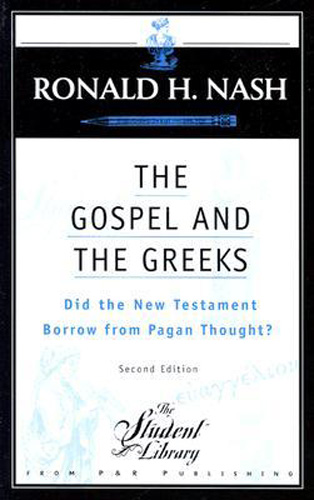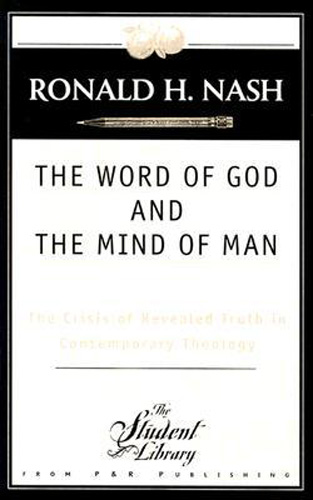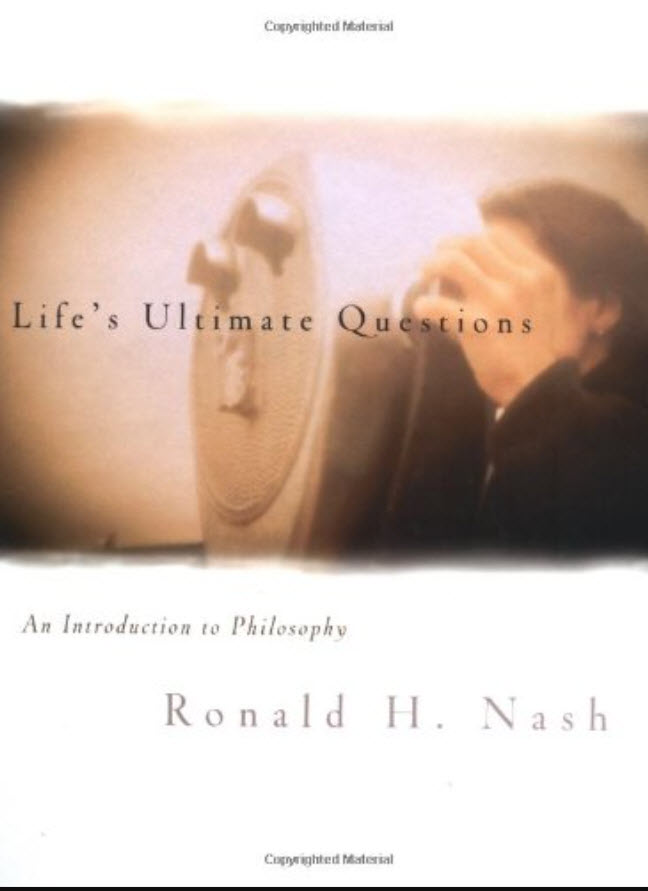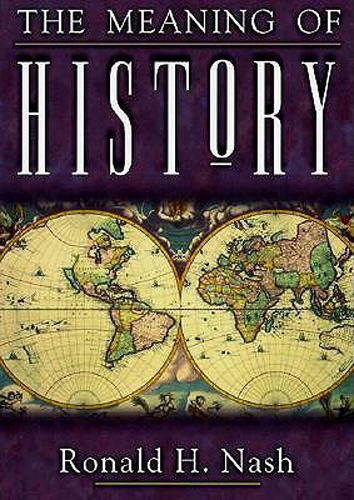History of Philosophy and Christian Thought - Lesson 22
Philo
Philo's philosophy was based on a synthesis of Stoicism and Platonism.

Philo
Hellenistic Philosophy
Part 4
IV. Philo
A. Alexandrian Judaism
B. Philo's Philosophy
1. Synthesis of Stoicism and Platonism
2. Difference between Spiritual and Physical World
3. "Logos"
a. Intermediaries
i. Angels
ii. Moses
iii. Great High Priest
b. The Mind of God
c. Personification
Introduction
0% Complete- 0% Complete
Thales and Anaximander were two philosophers in the sixth century BC that lived in Miletus.
0% Complete - 0% Complete
Heraclitus and Pythagoras lived into the 5th century BC.
0% Complete - 0% Complete
Any worldview addresses the subjects of God, ultimate reality, human knowledge, ethics and human persons.
0% Complete - 0% Complete
Fundamental beliefs of a naturalistic worldview is that nothing exists outside the physical universe and that all things evolved.
0% Complete - 0% Complete
Plato was a student of Socrates and lived into the fourth century BC. He opposed hedonism, empiricism, relativism, materialism, atheism and naturalism.
0% Complete - 0% Complete
Plato described the universe as having three levels: the world of particulars, the world of forms, and the form of the good.
0% Complete - 0% Complete
Plato's view of the universe was dualistic.
0% Complete - 0% Complete
One of Plato's fundamental arguments is that the human soul is immortal.
0% Complete - 0% Complete
Evaluation of Plato's arguments and comparison of Plato's philosophy with biblical theology.
0% Complete - 0% Complete
Empiricism teaches that all human knowledge arises from sense experience. Rationalism teaches that some human knowledge does not arise from sense. experience
0% Complete - 0% Complete
Aristotle was a student of Plato and lived in the fourth century BC.
0% Complete - 0% Complete
Aristotle rejected Plato's doctrine of two worlds.
0% Complete - 0% Complete
Discussion of Aristotelian philosophy as it relates to the incarnation.
0% Complete - 0% Complete
Aristotle's philosophy as it relates to attributes of God and fundamental assumptions about psychology.
0% Complete - 0% Complete
Aristotle made a distinction between passive intellect and active intellect.
0% Complete - 0% Complete
Discussion of the strengths and weaknesses of the law of non-contradiction.
0% Complete - 0% Complete
Discussion of the nature and substance of matter.
0% Complete - 0% Complete
Hellenistic philosophy was an approach that was popular from the fourth century BC to the fifth century AD.
0% Complete - 0% Complete
Stoics were determinists who believed in living according to nature.
0% Complete - 0% Complete
Hedonism emphasized pleasure as the greatest good. "Eat, drink and be merry for tomorrow we might be dead."
0% Complete - 0% Complete
Philo's philosophy was based on a synthesis of Stoicism and Platonism.
0% Complete - 0% Complete
Implicit "Logos" Christianity is an underlying theme in the book of Hebrews.
0% Complete - 0% Complete
Plotinus lived in the third century AD and is considered the founder of Neoplatonism.
0% Complete - 0% Complete
Augustine is a Latin church father, is considered by many to be one of the most important figures in the development of Western Christianity.
0% Complete - 0% Complete
Augustine wrote Confessions as an autobiographical work to record his experience as a sinful youth and his experience becoming a follower of Christ.
0% Complete - 0% Complete
Augustine wrote to refute some heresies of the day by focusing on the concepts of faith and reason.
0% Complete - 0% Complete
Augustine writes about the problem of evil and describes evil as the absence of good.
0% Complete - 0% Complete
Augustine writes to refute Pelagianism by focusing on the biblical teaching about sin.
0% Complete - 0% Complete
Augustine writes to refute Donatism.
0% Complete - 0% Complete
The fundamental idea of skepticism is that no one can know anything. Augustine this statement contradicts itself because the skeptic is claiming that you can know that you can't know anything.
0% Complete - 0% Complete
When Augustine wrote "The City of God," he had a linear view of history.
0% Complete - 0% Complete
In Augustine's theory of knowledge, he says that eternal reason and human reason are two different levels of reason.
0% Complete - 0% Complete
Augustine was personally convinced of the importance of divine illumination.
0% Complete - 0% Complete
The intellectual background of Thomas Aquinas was influenced by the discovery of ancient manuscripts, the rise of universities, the rise of religious brotherhoods and the rise of Muslim philosophy.
0% Complete - 0% Complete
Aquinas describes faith as whatever a human can know through special revelation, and reason as whatever a human can know outside of special revelation.
0% Complete - 0% Complete
Aquinas attempts to prove God's existence.
0% Complete Aquinas describes four kinds of law as eternal, divine, natural and positive.
0% Complete- 0% Complete
The rationalists and empiricists set the stage for Kant and other philosophers of the modern era.
0% Complete - 0% Complete
Kant argued that moral requirements are based on a standard of rationality he dubbed the “Categorical Imperative."
0% Complete - 0% Complete
Kants two worlds are the phenomenal world and the noumenal world.
0% Complete - 0% Complete
Discussion of criticisms and questions about Kant's ideas.
0% Complete - 0% Complete
Similarities between Kant's ideas and postmodernism.
0% Complete - 0% Complete
The dialectic is a central idea in Hegel's philosophy.
0% Complete - 0% Complete
Ideally, Marxism begins with class struggle, then revolution, dictatorship of the proletariat, withering away of the state, and a utopian classless society.
0% Complete - 0% Complete
Discussion of four faces of Marxism.
0% Complete - 0% Complete
Nietzsche proclaimed that, "God is dead." His cure was to live life knowing there is no ultimate meaning. Kierkegaard emphasized a worldview based on true faith.
0% Complete
In this class, you will explore the rich history of philosophy and its relationship with Christian thought. The course begins with an introduction to the definition and importance of philosophy in Christian theology. You will then delve into the evolution of philosophical thought from the Pre-Socratic era, through the Classical Greek philosophers, and into the Hellenistic period. As you progress, you will discover how early Christian thought emerged and developed during the Patristic period, with a special focus on Augustine. The class continues with an examination of medieval Christian thinkers, such as Anselm and Thomas Aquinas, and concludes with an analysis of modern philosophers like Descartes, Kant, and Kierkegaard, and their influence on contemporary Christian thought.
Two other books that are recommended reading for this class are Confessions by Augustine and Phaedo by Plato.
Recommended Books
The Gospel and the Greeks: Did the New Testament Borrow from Pagan Thought?
Examines contemporary claims for Christian dependence on Hellenistic philosophy, Greco-Roman mystery religions, and Gnosticism. He finds the case for dependence in the...

The Word of God and the Mind of Man
The last two centuries of Christian theology are the record of an evolving attack on the role of knowledge in the Christian faith. The purpose of this book is to challenge...

Life's Ultimate Questions: An Introduction to Philosophy
Life's Ultimate Questions is unique among introductory philosophy textbooks. By synthesizing three distinct approaches

The Meaning of History
The Meaning of History is a concise look at the meaning of the history of the world from the viewpoints of major historians and philosophers. By examining the individual...

Dr. Ronald Nash
History of Philosophy and Christian Thought
th620-22
Philo
Lesson Transcript
Let me begin talking about chapter six in the Gospel in the Greeks. Now, don't make the mistake of thinking that the only reason I write Chapter six in the Gospel in the Greeks and the only reason I write Chapter four in the book, The meaning of history is to finally tell the world the real name of the guy who wrote the Epistle to the Hebrew Hebrews. All right. Now there's a more serious objective in view. My objective in the book, The Meaning of History, is to help you understand that the Christian view of history, the linear view of history, did not begin with Saint Augustine and his City of God. The linear view of history begins implicitly in the Old Testament, but then begins explicitly in the Epistle to the Hebrews. It is the writer of Hebrews tells the world clearly explicitly, that the biblical view of history is different from the cyclical view of the earlier thinkers. It has it's a line. It's a straight line that has a beginning and an end in the gospel, in the Greeks. My purpose in Chapter six is to explain the appearance in the New Testament of the philosophical notion of Lagos 100 years ago. Liberals true to their shallow way of thinking. Began to argue that the writer of the fourth Gospel, you know who talks that way? Answer only another liberal. All right. Let's not be. John, the beloved, the author of the fourth Gospel, begins it by saying in the beginning was the Lagos and the Lagos was with God and the Lagos was God. All things were made by him and without him was not anything made that was made.
[00:02:30] So how does a liberal look at that? He says there's the influence of stoicism. There's the influence of Philo, the Jewish philosopher who died. Sometime between 48 and 58. So what I do in the gospel in the Greeks is give you. An explanation of how the notion of Lagos came to John, the beloved, the human author of the fourth gospel. It didn't come through Philo. It came according to my theory. It came through the Christian author of the Epistle to the Hebrews. Now, the Book of Hebrews never develops what we call a Lagos Christology in explicit terms. In other words, what you have in the fourth gospel is an explicit Lagos Christology. But that's not the first time a Lagos Christology appears in the church. Or so I say. Okay. I say, if you want the first appearance of a Lagos Christology in the New Testament, you're going to go to the Book of Hebrews, where you will find it in an implicit form. That is, you've got to dig around for it. And that's what we're going to do. Now, before I give you that whole set of theorizing, I want to talk to you about Alexandria and Judaism. And I want you to pay very close attention to what I say in your textbook about Alexandria and Judaism. After the Jews returned from exile, not all of them returned to Palestine. Many of them went to other countries. This is what is called the dispersion the diaspora. And many Jews ended up going back to Egypt. And because after Alexander the Great established the city of Alexandria. So every time Alexander conquered some territory, he established a city and he named it after himself. So there were Alexandria's all over Alexander's territory. Alexandra became a new kind of center of learning.
[00:05:05] It ended up with a magnificent library. It became a center of culture and philosophy. And as more and more Jewish people lost contact with their homeland and they lost contact with the Hebrew language. They no longer spoke Hebrew. Their language became Greek. And as you know, they eventually developed a Greek translation of the Hebrew Bible, which of course, was called the Septuagint, because of all of a myth or story that 70 people helped translate that. Well, the longer these Jews remained in Alexandria, the more captive they became to Hellenistic ways of thinking. They could no longer speak Hebrew. They could no longer read the Old Testament in Hebrew. And so they naturally began became under the influence of Hellenistic philosophies. And in particular, they came under the influence of what was a new synthesis, a synthesis of stoicism and platonism. Now, this idea of bringing together formerly alienated theories was a characteristic of the later Hellenistic ages. The major Jewish thinker of Alexandrian Judaism was a man named Philo, who ended up dying sometime between 40 to 50 A.D.. We really don't know the exact year of his death, and we're going to guess that he was born around the time that Jesus was born, so that Phyla might have lived to be 40, 50 years old. We do know from external records that he did visit Rome on one occasion after 40 A.D., where he represented the Jewish community in Alexandria to the Roman Emperor. We do know that. Okay, Now, Philo is not a great philosopher. He was kind of a minor league guy. I think I use the analogy the first day we met. You have the major leagues, then you have triple A, and then you've got the ball file would have been a, you know, a minor leaguer on the level of a ball, high single-A ball.
[00:07:34] But he nonetheless was an important player. One of the things he is most famous for is his theory of the Lagos. Remember, he's influenced by Stoicism. He's influenced by Platonism. First of all, Philo taught the difference between the spiritual world and the physical world. You have the higher world. Now I'm using that in a different sense than we did weeks ago. You have the spiritual world, and that's where we find God. And then you have the physical world. And this is where human beings are. Okay, now, final combine this with a with a typically platonic contempt for body. Platonist have never been friendly. At least certain kinds of platonist have never been friendly towards the body. So what's up here is good. What's down here is not so good. There are degrees of evil. And so we finally had the question How can the good God who lives in a good spiritual world actually have contact? With a kind of contemptible physical world now, including the things that's down that is down here. Is Moses. All right now, fellows, a Jew. Moses is very important to feel as he should be. He's important to Christians. How could God have contact with Moses to give him the Ten Commandments, to give him all of these other instructions about the tabernacle in the wilderness? And here is final answer. God doesn't deal directly with things in the physical world. He uses intermediaries, intermediaries and file developed what was really a new word to refer to these media areas. He used the word Lock us. These beings that act as go betweens between the physical world and the spiritual world where God is our language. That's the plural. Now, here were three examples, three examples of these intermediaries for file.
[00:10:05] First of all, there were the angels. They were intermediaries between the spiritual world and the physical world angels. Secondly, Moses. Moses stood between the people and God. Okay. And then finally, the great high priest, the great high priest. You talk about a mediator between God and man. That's what the high priest did. All right. If you start reading through the episode of the Hebrews, the writer of Hebrews, whoever he turns out to be, talks in order. In. In chapter two, he talks about the angels. In chapter four, he talks about Moses. And in chapter seven, he talks about the Great High Priest. Now you may yawn. Go ahead and yawn. I don't care. But is that a coincidence? It's an amazing situation, I suggest. Okay. It is. It is it is a coincidence that has convinced many people that whoever the author of the episode of the Hebrews is, he may have been someone who was very familiar with files writings. Okay, I've already told you that file used was so far as I know the first man to use the word Lagos in the sense of intermediary. This is one sense in which he used the word Lagos. Intermediary. There is a Greek word for intermediary as a taste. I won't put it on the board. I do mention it in the book, and I think he uses meditates once or twice in his writings. But anyway. Now final. Also use the word Lagos in another sense, and I'm going to write it on the board. Lagos, let's call this Lagos one up here. Let's call this Lagos to the mind of God. Now, this takes a little bit longer because there is a little debate in the history of ideas, and I don't really know who's right here.
[00:12:37] I do know this, that many sources will tell you that. Middle platonism. I'll explain that word in a moment. Middle Platonism was the first collection of thinkers who who interpreted who taught that a Plato's forms exist in the mind of God. That's middle platonism. The forms subsist in the mind of God, and they interpreted Plato's God as the form of the good. Those two important ideas grow out of middle platonism. Let me give you some years for middle platonism. It would be about, I think, 100 A.D., give or take a few years to about 150 to 160 A.D. Didn't last very long. It was it was 19th century Germans who said they came up with the term neo platonist. And then somebody said, Well, that means that Apollonius and some of these other guys must have been the first middle platonist. All right. And before them came, you know, the older guys. And that's why they're called middle Platonist. Now, people who talk about middle Platonism and I will never ask you anything about them. You will never hear about them again from me on a quiz or an exam. But just there are just dozens of books that say that they were the first guys who located Plato's forms in the mind of God. Now, I'm telling you that because I think Final was and if Final died in 4250 A.D. by all, by my reckoning, this comes before 100 A.D.. Do you agree with me on that? Please give me credit for saying something. That's right. Okay. Now here's what file. Or did he remember his God is completely different. Transcendent. So here's God. And then God for Firewall has some kind of relationship to something that's inferior to him that he calls the Lagos and final place is the Lagos in I'm sorry, final places, Plato's forms in the Lagos.
[00:15:14] Now, what final meant by all of that? Whether it's simple or confused, the Lagos is God's mind. This is these are God's thoughts. So one of the things He's saying is the mind of God is somehow distinct from God. I don't understand what that means for final, but whatever the mind of God is, you can personify it and you can you can understand that that's where Plato's forms exist in the mind of God. So in one sense, then the Lagos the final talks about exists. I know I've put Lagos below God. It obviously God's mind is going to function on the same level as God. See? Now, one of the things about final was he never wrote anything clearly. So I'm inclined to think that maybe this would be I'd be interested in reading a research paper on the question, Did final really was he really the first guy to place the forms of Plato in the mind of God? I just want to warn you here. I'm not sure there's enough literature for you to make a case for any position there. Okay. Now, thirdly, and this would be like us. Meaning number three, Thilo personified the Lagos. There's a personification of Lagos soul that he actually attributes personal pronouns to the Lagos. But once again, there is an earlier source for this. And that earlier source would be Proverbs Chapter eight, which of course, every Jew would know about. What the writer of Proverbs does is personify the Sophia Sophia wisdom. Okay. And the writer of Proverbs tells us that when God, when Yahweh created the world, Sophie was there with God. So that there seem to be two minds, two persons present at the creation. Your way and Sophia. And that theory also is picked up in a book called The Wisdom of Solomon, which was that came out of Alexandria.
[00:17:38] Now, clearly, Feisal did not teach that the Lagos was a person separate from God. That would have been inconsistent with his Judaism. It would have also been inconsistent with a lot of other things he did. So here is a mess of ideas, none of which are consistent, none of which are coherent, none of which are particularly intelligible that appear in the writings of a final.